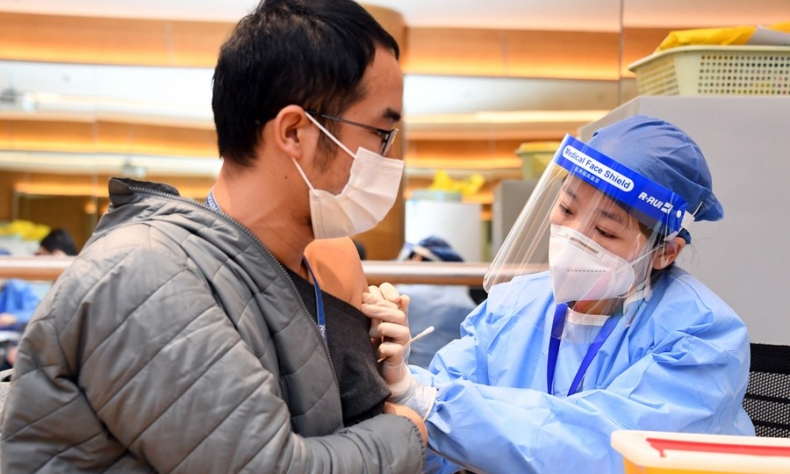Striving for a Safer China and a Safer World

I hope that the idea of putting people’s safety and well-being first can become a general principle throughout the world, that others can make this general idea a reality in their civilizational contexts as well.
China’s 14th Five Year Plan contains a paragraph on the topic of “Safe China”. It states that “we will safeguard people’s lives, insist that people come first and life comes first, put the protection of people’s lives in the first place, and comprehensively improve the capacity of public security.” This is a highly interesting statement to reflect upon – from several different angles.
China’s government and its experts have modernized this understanding with regard to the principle of putting the people, that means every individual’s health and safety, in the first place. The announcement of the topic of “Safe China” in the 14th Five Year Plan comes at a time of high risks and a high level of insecurity for many people all around the world caused by the pandemic of the virus COVID-19. In comparison, China has managed this crisis exceedingly well. Many people around the world are asking: Why did China come out of this dangerous situation with flying colors while the rest of the world is still in dire straits at this moment?
The Chinese government has applied and still is applying a strategy which puts the safety and well-being of every single individual and therefore the public health of the people as a whole first. This is absolutely reasonable, because if just one person is forgotten and left alone in such a situation this would not just have to be seen as a moral issue, of course. First of all, an infected person is in danger of his/her life, and secondly, everyone who would be left alone with the disease very likely would spread the virus to others and would therefore become a tool of humanity’s new invisible enemy, the virus COVID-19.
It is a simple truth: As long as there is no cure which works a hundred percent, the virus will spread as long as the people and every single individual are not protected as well as long as the people are not educated to take 100 percent care for each other and to protect each other as much as possible. There is no alternative to this, because everything else leads to a high death toll especially in the elderly population and severe long-term health problems of a certain percentage even of younger survivors as well as new mutations of the virus which make it even more dangerous.
What’s more, to safeguard the economy of a nation, people’s safety always has to be put first. This is what we can learn from this crisis. The reason why China could restart its economy so fast is because the government, health officials and tens of thousands of medical staff have fought an unprecedented battle for the safety of their people. If one safeguards the people, and puts their superior interest and the superior interest of all – which is health and well-being – in the first place, the economy can always be rebuilt or restarted even in case of emergency or financial catastrophes etc. But if one does not follow this principle, neither the economy nor the people who are the creators of this economy will be able to recover.
I think, the Chinese people are very well aware of this. From traditional Chinese medicine we can derive the understanding that it is smarter to prevent an illness than to wait until it is at one’s doorstep. Avoiding the disease is better than fighting the disease. In this sense, I made the observation that many Chinese right from the beginning followed the principle to better be careful once too often than once too little. I think in China it is common sense that it is an obligation to protect each other and, last not least, to respect the right of the other person and their family members and friends to a healthy body by collectively wearing masks in such situations.
Avoiding the danger is better than having to cope with it. Therefore, public and personal safety must be a major priority for every modern society. Without safety there will be no happiness. A high-quality state has to strive for the safety and happiness of the people. This, of course, does not only hold true for pandemic health issues, but also with regard to other matters of concern. Humanity has put itself in danger in many respects, and humanity is endangered by many threats today – most of which can only be solved collectively, as a whole. With the new Five Year Plan the understanding that safety must be one of the first principles has become a new general lighthouse for political and administrative action in China – not just with regard to the current pandemic but also in a most general and very future-laden sense.
I hope that the idea of putting people’s safety and well-being first can become a general principle throughout the world, that others can make this general idea a reality in their civilizational contexts as well. The only road to this is global poverty reduction and the joint and all-inclusive creation of a prosperous shared future. Two of the major pre-conditions for this are mutual social and cultural recognition – in short: unity in diversity.
David Bartosch is a Professor of School of International Relations and Diplomacy, Beijing Foreign Studies University.
The article reflects the author’s opinions, and not necessarily the views of China Focus.
 Facebook
Facebook
 Twitter
Twitter
 Linkedin
Linkedin
 Google +
Google +










